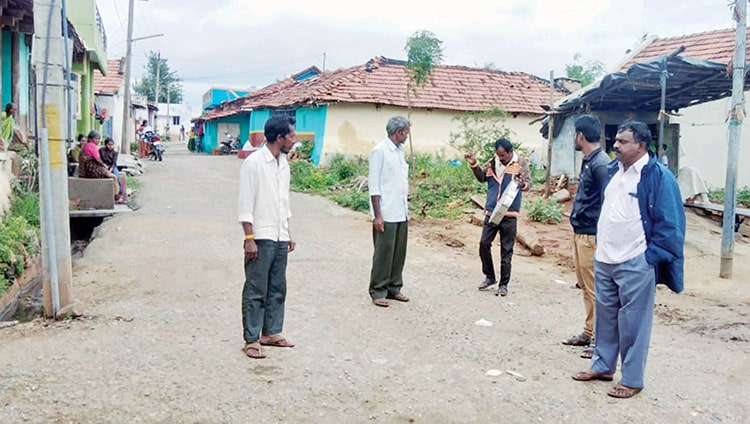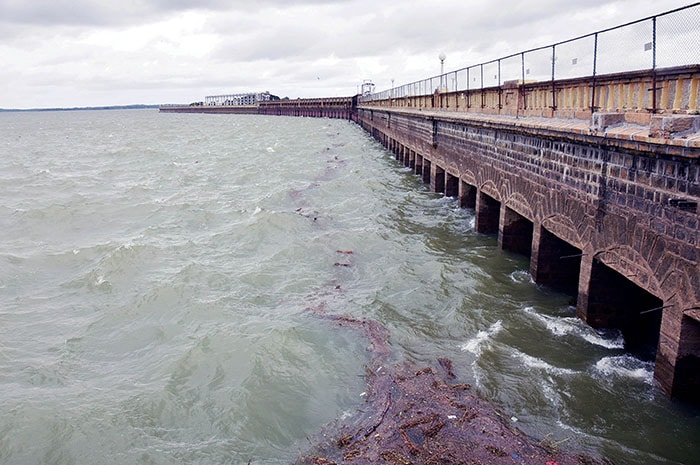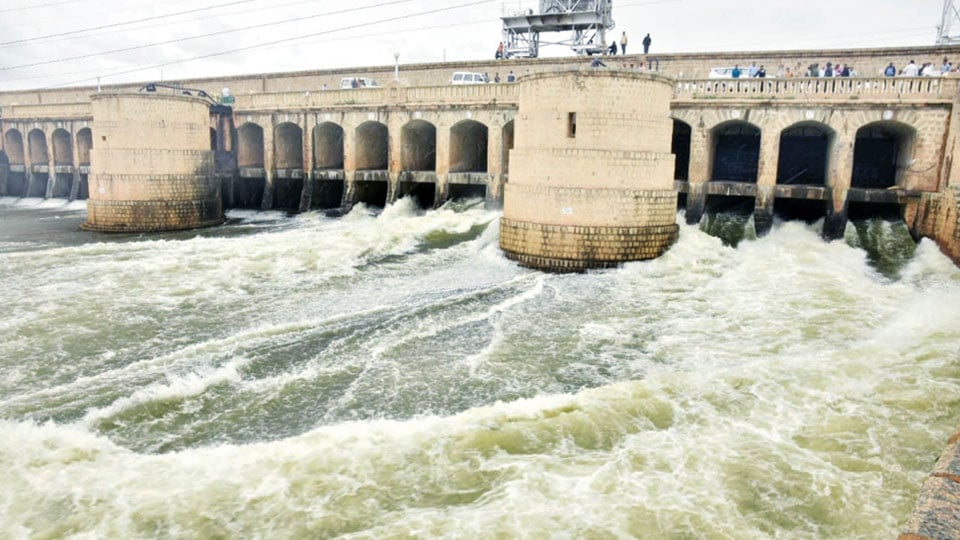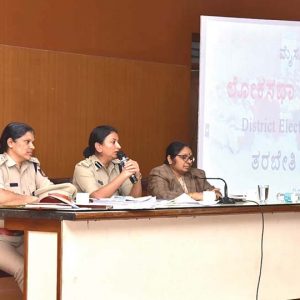Mysore/ Kushalnagar: The Krishna Raja Sagar (KRS) Dam has reached the 112 feet mark this morning and the Dam authorities have released 50,000 cusecs. Villagers living in downstream areas have been warned not to venture into the river as water will be in full force and sudden. A red alert has been issued.
A team of public announcers beating the drums (Dangura) have arrived in villages to warn the residents. Red alert has been sounded, cautioning villagers.
Speaking to SOM this morning, Vasudev, Assistant Executive Engineer (AEE) of Cauvery Neeravari Nigam Limited (CNNL) that manages KRS, said that the inflow to KRS stands at 1,30,000 cusecs as of now and is likely to increase to 1,70,000 cusecs by evening. “As of now, we have released 50,000 cusecs and the quantum will increase as and when the inflow increases,” he said.
Though the maximum water level in the dam is 124.80 feet, it has been decided to release 50,000 cusecs of water today as the present inflow to the Dam has crossed one lakh mark following heavy rains in Kodagu. Downpour in the Cauvery catchment is continuing and the Dam authorities are expecting more inflow and the level is expected to reach the maximum in a day or two.
Last year, the Dam had reached its maximum capacity in July and thanks to delayed monsoon, this year it is yet to reach the maximum level. According to the orders issued by KRS AEE, 50,000 cusecs will be released per hour.
Following this development, drum-beating-announcers are spreading the word in villages along the downstream including Karekura, Palahalli, Belagola, Srirangapatna, Yenneholekoppalu and surrounding areas. The Revenue Department has taken the responsibility of informing the villagers of the danger.
Villagers have been warned not to venture into the river and prevent their livestock from drinking water from the river. The high alert will continue till the water release from the dam stops.

Transport services hit
Meanwhile, KSRTC transport service, the lifeline of the people in the region, has been hit hard. While the Saragur Road in H.D. Kote has been washed away at many places, water has covered the Nanjangud Road and several stretches inside Bandipur Tiger Reserve. River Cauvery has crossed beyond the danger mark in Kushalnagar and Koppa on Mysuru-Kodagu border following heavy outflow from Harangi Reservoir.
As a result, the KSRTC has suspended service to Mysuru-H.D. Kote, Mysuru-Madikeri (via Kushalnagar), Mysuru-Kerala and Mysuru-Ooty.
According to KSRTC Rural DC Manjunath, services have been suspended and will resume once the water clears. It will take some time for Saragur Road to be repaired, he added.

7 killed in Kodagu
So far, seven people have lost their lives in Kodagu and over eight persons are missing. 58 places in Kodagu have been marooned and landslides have occurred in 15 places. Latest reports from Kodagu say that 34 relief centres have been established and 2,866 people from 817 families have been accommodated in the centres.
Over 247 affected people have been shifted from flooded houses, estates and river banks. Also, 11 cattle heads have been rescued. In Bhagamandala and Kushalnagar, the villages located on the banks of River Cauvery have been completely submerged.
Exacerbated by landslides: In the mountainous district, thousands of people have been marooned because of torrential rains. Exacerbated by landslides in hilly terrain, flooding has led to the destruction of homes, bridges, road networks, and industries.
Kodagu Deputy Commissioner Annies Kanmani Joy said that the flood washed away around 5,000 homes in Kondangeri, Murnad, Guhya, Koodugadde, Bettadakaadu, Karadigodu, Baradi, Ayyangeri and other smaller villages along the banks of the Cauvery.
“Over 10,000 houses were completely submerged. Many people had already left their homes but around 5,000 people were still there. They were rescued by the NDRF, SDRF, Fire and Emergency Services and the locals on Friday,” she added.








While it is a welcome news that KRS will reach maximum level soon, it is sad to know that thousands in Kadagu have suffered because of flooding and incessant rains. Both could be avoided. We the people take can take care of environment environment, then the flooding related crisis can be either avoided or at least minimize. In the case of latter by having proper building codes and regulations, such problems can be completely avoided. If we build houses on the river beds during summer months and then complain when water level increases, nothing can be done. This may sound like an extreme case. But that is what we do often. We need to enforce building codes strictly which we do not. At least let us prepare for the next rainy season by ensuring we do not have houses in areas which are likely to be flood prone. For loner term, let us start platting tress on a massive scale.